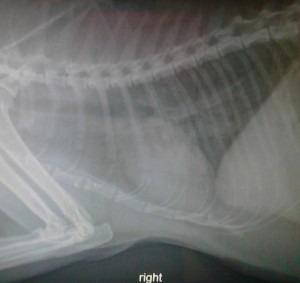It may be a little known fact that pets can also suffer from asthma. In this blog, we will concentrate on Feline Asthma.
Feline Asthma is similar to human asthma. It is a chronic inflammation of the small passageways of a cat’s lungs. When an asthma attack occurs, these passageways thicken and constrict, making it very difficult for a cat to breathe. This often leads to distress, which can become very serious in a matter of minutes. The lungs may also begin to discharge mucus into the airways, leading to fits of coughing or wheezing. Some cats with milder cases of asthma may only experience a slight, ongoing cough. Asthma can occur in cats of any age, but is most common in cats aged between 2 & 8 years of age. There is also a higher occurrence in female cats than male cats. Because asthma can quickly become a life-threatening health problem, if your cat is coughing we advise having them examined by a vet.
Symptoms
* Coughing
* Wheezing
* Sneezing
* Difficulty breathing or open-mouthed breathing
* Poor appetite
* Weakness
* Lethargy
* Blue lips and gums
* Gagging up foamy mucus
* Laboured breathing after exertion
Causes
There are a number of factors that contribute to asthma in cats but it is thought to develop as a result of allergic bronchitis. Allergic bronchitis occurs when the airways in a cat’s lungs become inflamed due to an inhaled allergen or substance that stimulates the immune system.
Common factors include:
* Allergens such as pollens, moulds, dust from cat litter, cigarette smoke, perfume, hair sprays, air fresheners and certain foods
* Pre-existing heart conditions or illnesses
* Parasites such as lungworm
* Extreme stress
* Obesity
* Sensitivity to environmental pollutants
Diagnosis
The first step to obtaining a diagnosis is a thorough clinical examination by your vet. During this examination, your vet will ask you questions about your cat’s history such as their symptoms, diet or if any possible incidents may have led to this condition.
As there are no specific tests to prove asthma, typically X-ray imaging, blood test and evaluation of bronchial secretions will be preformed to rule out other causes.

A chest Xray of a cat. Can you spot the lungs, heart & thorax? You can also see the ribs and some vertebrae.
Management
There is no true cure for asthma but there are various methods of managing it. Effective therapy may include medications that will open up breathing passages and reduce airway inflammation or modify the body’s immune response. Sometimes, medication is administered through a specially adapted inhaler.
You may also need to change your home environment to help your cat’s health needs. Certain foodstuffs may also need to be avoided. In chronic cases, life-long treatment is common. You will also need to be especially observant of your cat so you can treat them with the medication prescribed or seek veterinary treatment as quickly as possible.
Prevention
* Reduce stress in your pet’s environment
* Do not use perfumes, room fresheners, hairsprays etc. around your cat
* Avoid using fine cat litters that create dust
* Keep their weight down
* Do not smoke indoors or around your cat
If you are concerned your cat may have asthma or have any health concerns about your pet, please phone City Vet on 061-419760.